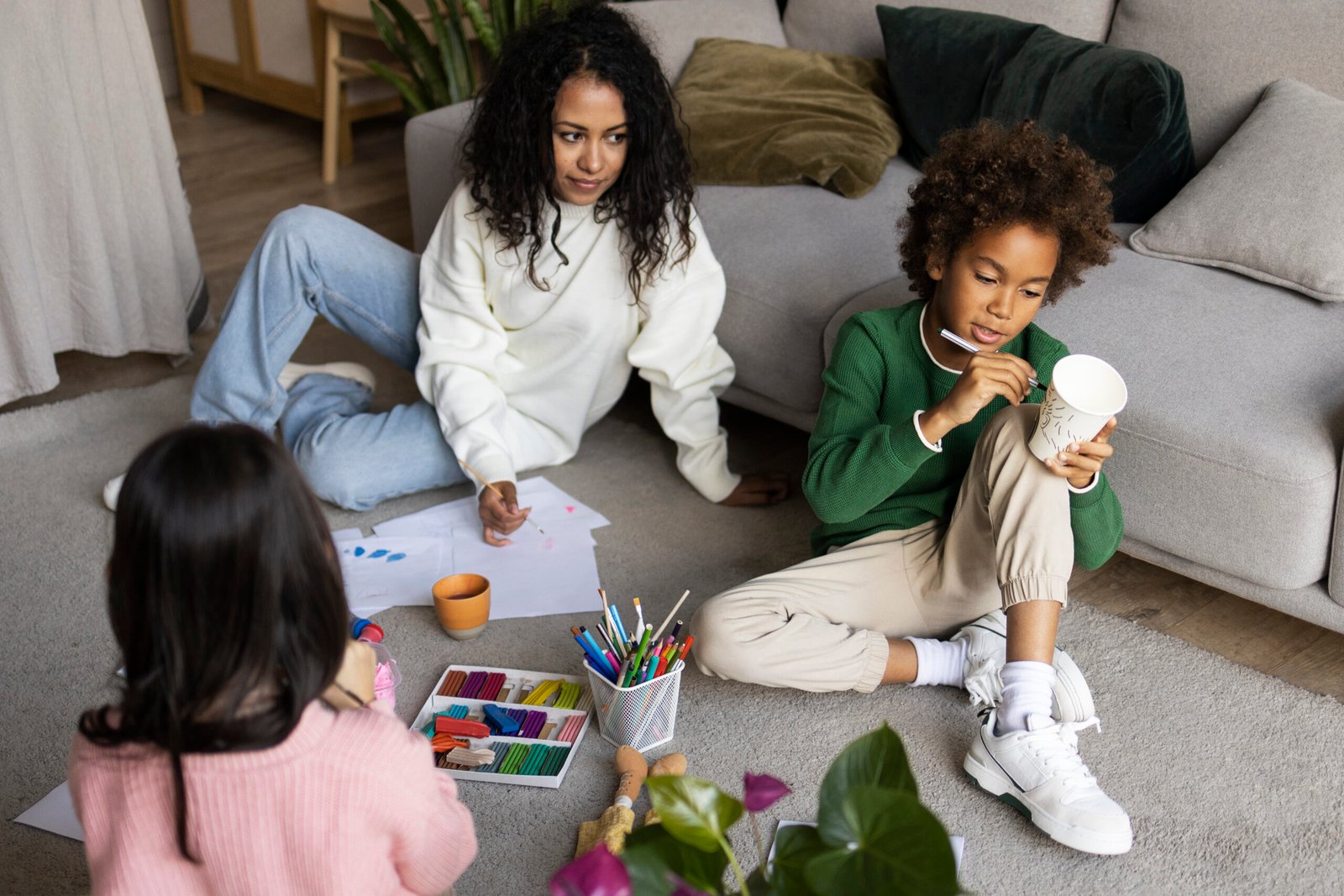
Children develop key social skills through shared play and communication in early childhood settings. Freepik
Social development begins the moment a child starts to explore the world. Each shared toy, friendly smile, or comforting hug helps them understand what it means to belong and be cared for. When parents nurture empathy and connection early on, they give their child the tools to grow into a confident and compassionate person.
Why Social Development Matters More Than You Think?
Children don’t naturally understand cooperation, empathy, or compromise, but they absorb these skills from everyday interactions. Social development strengthens emotional intelligence, teaching children how to read facial expressions, tone, and gestures while recognizing how their actions affect others. When children begin to notice and respond to the feelings of those around them, they take their first steps toward genuine empathy.
The benefits go beyond the playground. For example, a child who can manage frustration and express emotions calmly is more likely to succeed in school, form friendships, and feel secure in group environments. Strong social foundations also make it easier to adapt to new experiences, handle challenges with resilience, and maintain emotional balance as they grow.
Finding the Right Early Learning Center
Choosing an early learning center is one of the most meaningful decisions parents make during the early years. A nurturing program, such as East Burwood Preschool, can provide the space for children to explore social interactions in a supportive and structured way. Look for a center that values emotional development as much as academics, where teachers encourage cooperation, curiosity, and problem-solving through play.
When you visit a preschool, observe how teachers engage with children. Do they get down to their level when resolving disagreements, or guide them to express their feelings with words? High-quality programs create classrooms filled with empathy, encouragement, and respect, helping children gain confidence in their voices and comfort in their relationships.
Bringing Play Back into Learning
Play is more than entertainment and represents how children make sense of their world. Building with blocks, pretending to run a café, or caring for a doll teaches communication, cooperation, and creativity in ways no lesson plan can. Through play, children test boundaries safely and learn to negotiate, share, and take turns.
At home, encourage unstructured playtime where your child takes the lead and imagination sets the tone. Ask open-ended questions that invite problem-solving, like “How can we make that tower stronger?” rather than giving direct instructions. These small exchanges build patience and teamwork, while teaching that mistakes are opportunities to learn, not setbacks.
Being the Example They Watch
Children are always observing how adults behave, especially when emotions run high. They notice how you handle frustration, how you speak to others, and whether you show kindness in small moments. Modeling calm and respectful communication teaches your child that empathy and patience are not just words but daily practices.
No one gets it right every time, and that’s part of what makes modeling so powerful. When you admit a mistake and apologize sincerely, you teach accountability and emotional honesty. Children who see their parents navigate conflict constructively are better prepared to do the same with peers and future partners in life.
Making Time for Other Kids
Peer interaction is essential for learning social balance and cooperation. Group play exposes children to different personalities, helping them understand boundaries and fairness while building trust and friendship. Playdates, playground visits, and community programs all offer opportunities to practice these vital skills.
If your child feels shy or overwhelmed in group settings, start with short, familiar interactions and build gradually. Stay nearby for reassurance but resist intervening in every disagreement. Allowing children to navigate small conflicts themselves builds confidence and teaches them that communication is the best tool for solving problems.
Giving Feelings a Name
Young children often act out because they can’t find the words to describe their emotions. Helping them identify what they’re feeling gives them a healthy outlet and reduces frustration. Recognizing and labeling emotions like happy, sad, or disappointed also teaches self-awareness and empathy.
You can model this by naming emotions in everyday life. When you say, “I feel tired but proud of what we did today,” you show that feelings can coexist and be expressed openly. Over time, your child will start to articulate emotions instead of acting them out, which strengthens emotional intelligence and emotional safety.
Nurturing Empathy in Everyday Life
Empathy grows through repeated moments of connection, not grand gestures. Encourage your child to notice how others feel by talking about real-life situations: “Your friend looked upset when you left. What could we do to make them feel better?” This simple reflection helps them link emotions to actions.
Books and storytelling are also powerful empathy builders. Pause while reading to ask how characters might feel and what they could do differently. Empathy helps children understand that kindness has an impact, teaching them to value connection and compassion in every setting.
Why Boundaries Build Confidence
Boundaries may seem restrictive, but they actually provide a sense of safety and predictability. When children know the rules, such as taking turns or speaking politely, they feel more comfortable exploring and expressing themselves. Consistent expectations help them develop respect, patience, and understanding of limits.
Instead of harsh discipline, use calm explanations that teach responsibility. If your child hits or shouts, take a moment to breathe and explain why that behavior hurts others. With consistency, children learn that discipline is about guidance, not punishment, and that fairness builds trust between adults and children alike.
Encouraging Independence Without Pressure
A confident child is often one who’s allowed to try, fail, and try again. Giving your child small responsibilities, like pouring juice or packing their backpack, builds both self-esteem and a sense of belonging. Independence nurtures resilience and helps them feel capable in social situations.
Praise the process rather than the result to reinforce persistence. Say, “You worked hard on that puzzle,” instead of “You’re so smart.” When children believe effort matters, they approach challenges with curiosity instead of fear, developing confidence that naturally extends to their relationships with others.
What Truly Matters in the End
Supporting your child’s social development isn’t about achieving perfection or following rigid methods. It’s about being present, showing empathy, and encouraging progress through love and patience. Every conversation, shared laugh, and gentle correction strengthens your child’s understanding of themselves and others, helping them feel seen and supported. When children feel secure, they carry that confidence into every part of life.







